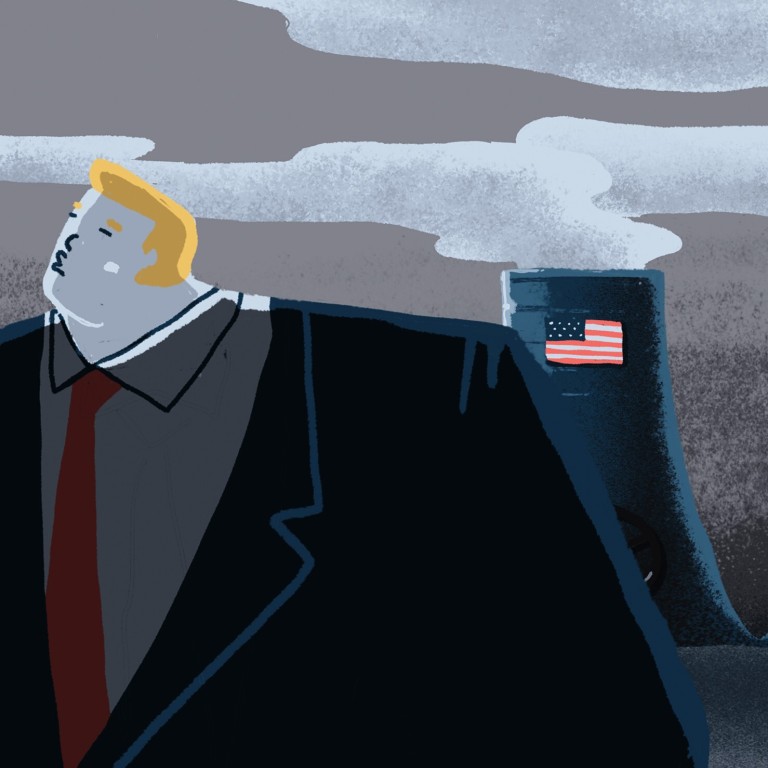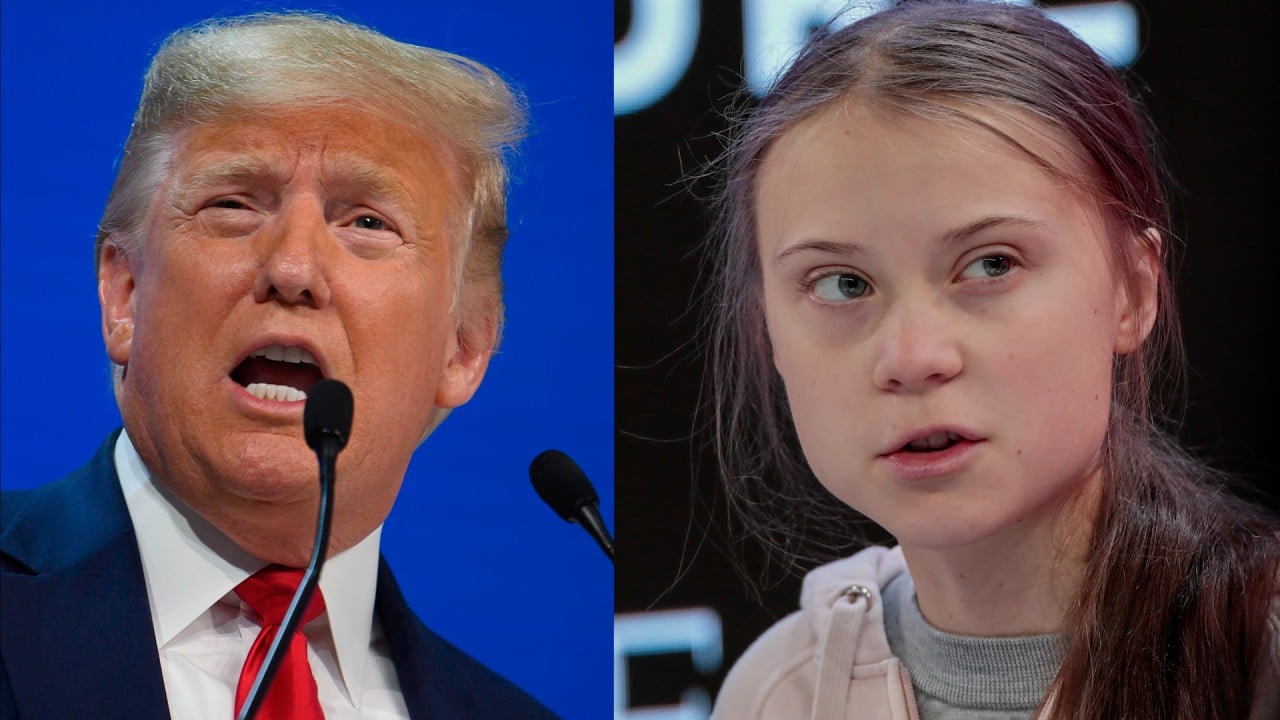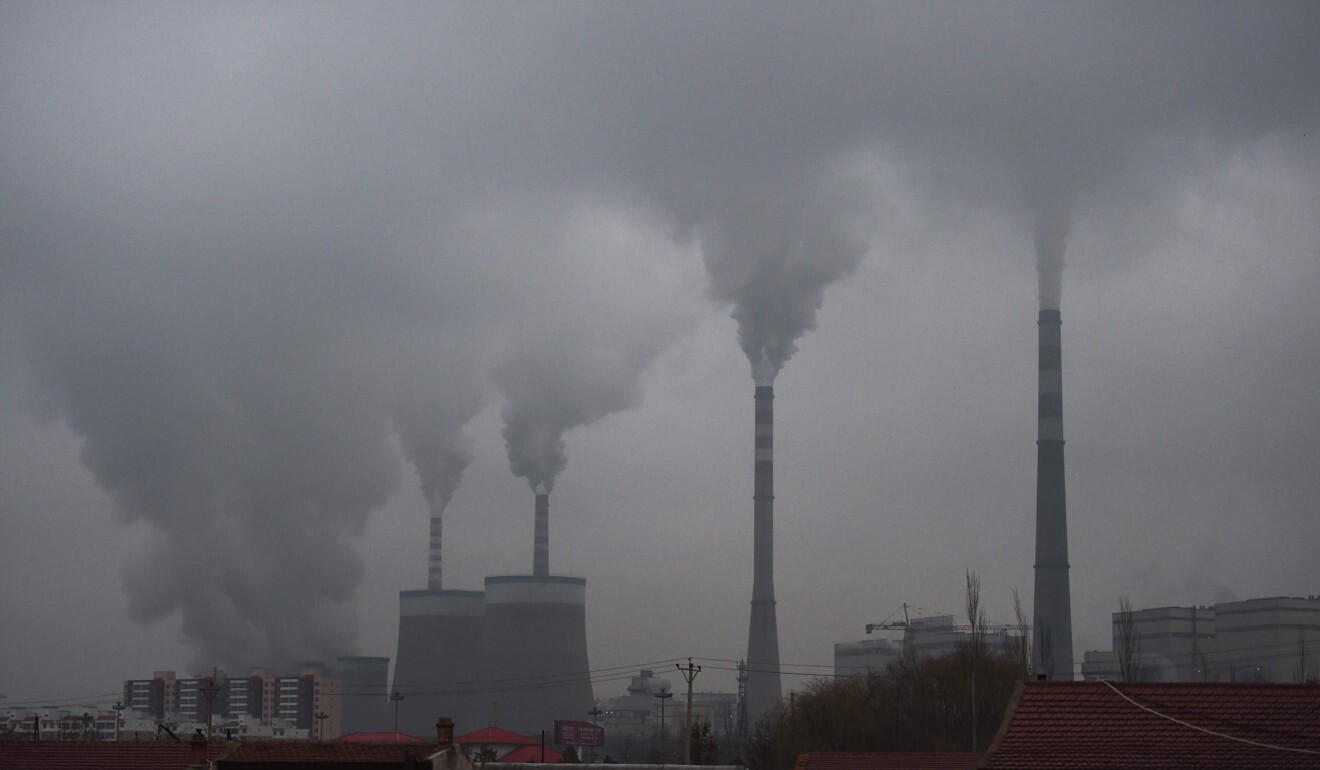
China, EU step up to carbon cut challenge as US exits Paris climate deal
- Washington to quit the agreement one day after the US elections but other powers are already taking up the reins
- A Biden presidency would be more active on carbon emissions but could still face hurdles in the Senate and Supreme Court

03:16
Trump and Greta Thunberg clash over climate issues at World Economic Forum in Davos
In the same month, European Commission President Ursula von der Leyen said the bloc would slash carbon emissions 55 per cent by 2030 – a target increased to 60 per cent by a European Parliament vote in October.
Li Shuo, senior climate policy adviser at environmental NGO Greenpeace, said China and the EU were aligned on the climate threat. “I think the alignment is primarily on the fundamental question of why we are doing this, why we are embracing climate action, and I think the two sides would agree that this is in their own interest – economic, political, environmental interest.”
“If Biden is elected president, the US likely will be poised, like never before, to accelerate climate action,” said Elliot Diringer, a former Clinton White House official who took part in climate negotiations for the 1997 Kyoto Protocol, a precursor to the Paris Agreement.

02:23
Bundled up for summer, European glaciers covered with blankets to slow melting from climate change
Diringer, now executive vice-president at the non-profit Centre for Climate and Energy Solutions, said that, despite the state of climate policy at the US federal government level, a number of major companies had released ambitious voluntary emissions targets over the past year.
Morgan Stanley, Apple, Google and Amazon this year released zero-carbon targets in their operations over the next few decades, while according to the Washington-based Center for American Progress, 11 US states and territories have policies to move toward 100 percent renewable energy economies by 2050.
“There are a number of factors that are converging that could really help jump-start action under a Biden presidency, which is not to say by any means that it will be easy,” said Diringer.
A Biden administration might even be an opportunity to rebuild ties between the US and China, according to Judith Shapiro, a professor in environmental policy at American University in Washington and co-author of China Goes Green: Coercive Environmentalism for a Troubled Planet.
Coronavirus is held up from China to Thunberg as a climate wake-up call
“While China has assumed the mantle of global leadership on climate change in the vacuum left by US abdication, ‘environmental peacemaking’ on carbon reduction can restart the cooperative relationship between the two superpowers,” she said.
Even if Biden wins the election, the congressional races will also have a role to play in any US climate policy shift. The Democrat-controlled House of Representatives is expected to stay that way in November, but the Republicans could lose control of the Senate if the Democrats can win four more seats. If Biden takes the White House, they would need only three, since the vice-president decides split votes.
“The margins in the Senate will be critical in terms of how quickly and what kind of climate outcomes can be achieved,” Diringer said. “Ultimately, it will require some action by Congress to deliver ambition on the scale that’s needed and that Biden has promised.”
A number of climate change initiatives during the Obama administration were stonewalled by the Republican-controlled Senate, and derided by majority leader Mitch McConnell as a “crusade for ideological purity”.
EU backs China carbon neutral pledge but ‘more work to be done’
Barrett did nothing to dispel those concerns during her confirmation hearing before senators on October 14. Asked if she believed in the existence of human-induced climate change, she said it was a “contentious matter” and one of “public debate”.
Beyond climate change, relations between Beijing and Washington are at their worst in decades, with the two powers clashing repeatedly over trade, technology, human rights, the Covid-19 pandemic and military ambitions.

But Greenpeace’s Li said the unilateral announcements by the EU and China in September on carbon emission cuts could provide a new model for tackling climate change.
“Two powers do not necessarily need to announce jointly,” he said. “They can raise their national ambitions in parallel with each other, as long as those actions would help us, would help the entire world, get close to the vision required in the Paris Agreement.”
Zhang Haibin, a professor of international relations at Peking University, said: “In the past China followed the US, but now China has made it clear that even if the US does not take action, China will.”
Could China take the lead in setting new global conservation goals?
The timing of Beijing’s carbon neutral announcement at the UN showed it was not just reacting to pressure, according to Lauri Myllyvirta, lead analyst at the Finland-based Centre for Research on Energy and Clean Air. “Xi Jinping clearly wanted to make the announcement proactively,” he said.
But Myllyvirta added that conflicts between the EU and China on issues such as trade, human rights, and imposition of a national security law in Hong Kong could hamper future collaboration on climate change.
“It is unrealistic,” he said, “to think that when there are hard conflicts or major disagreement in other areas all that gets put aside and everyone just becomes a happy family of nations to tackle climate change.”
Shapiro said Trump had done “incalculable damage to the US’ global standing on climate change and on a multitude of other issues that require multilateral cooperation”, but that did not stop other actors from stepping up.
“Civilised nations, local governments, civil society groups, forward-thinking enterprises, and individuals will continue to seek mechanisms for carbon reduction,” Shapiro said.
“They will need to deal with the already-felt impacts of extreme weather, sea level rise, ocean acidification, heatwaves and glacier melt, with or without the participation or leadership of Washington.”


